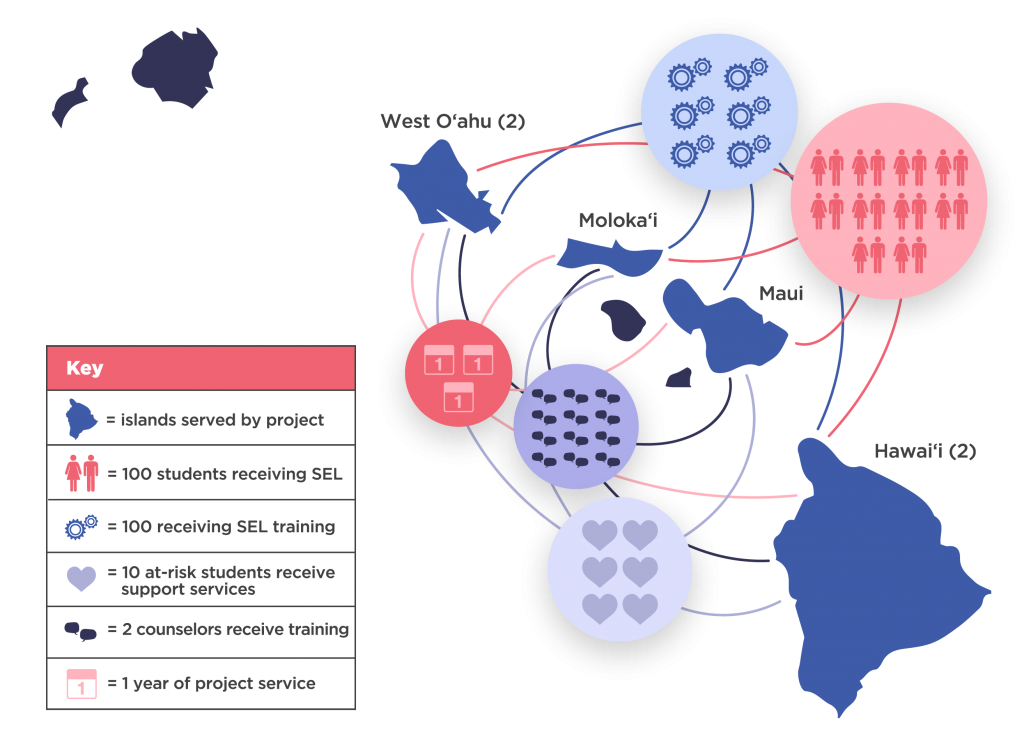Goals
-
- Over three years, the project will serve six rural, remote and otherwise disadvantaged elementary schools on the islands of Molokaʻi, Maui, Hawai‘i (2) and West Oʻahu (2).
- At least 1,000 students will receive social and emotional learning (SEL) to gain social and emotional competencies integral to their healthy development (Tier 1)
- 600 teachers, staff and community partners receive training on SEL and trauma sensitive pedagogy
- 60 at-risk students and their families will receive specialized support through Student Resilience Plans and delivery of comprehensive support services (Tier 2)
- 12 school counselors will receive specialized American School Counselor Association training

The project is a collaborative initiative between schools, social service agencies and community organizations to authentically engage them to embrace a mindset shift toward a whole child approach. This is not about narrowly defining success and requiring compliance, but rather an opportunity for schools to honestly reflect on their assets and challenges and ultimately buying in to refining their current practice around wrapping around the whole child. Once schools are selected based on need and meeting a suite of criteria, they will collaborate with the project team to assess the needs of their local communities and produce an asset map of their current programs, activities and prior staff trainings.
Teachers, support staff and community partners will receive professional development from experts in the field in a trauma-sensitive, multi-tiered system of support. Foundational areas of focus include developing competencies with both Trauma Informed Practices (TIPS) and SEL, with additional utilization of Native Hawaiian health practices, peacebuilding and action planning. In addition, school counselors and school-based behavior health coordinators will receive American School Counselor Association training to help students focus on academic, career and social-emotional development. This national model is centered around a set of professional standards and competencies, including mindsets grounded in a belief in the potential of all children, a strong professional foundation in theory and practice, skills to ensure students have access to direct and indirect supports and the knowhow to effectively assess student needs and create plans to address gaps.https://www.schoolcounselor.org/school-counselors/asca-national-model/templates-and-resources
At the core of this project, 10 at-risk Tier 2 students and their families per school will receive specialized support through Student Resilience Plans and delivery of comprehensive support services. Similar to the intent of Individualized Education Plans used for special education services, the Student Resilience Plans are a vehicle for students, educators, parents and support organizations to align around the whole child needs of vulnerable students and develop together the proper interventions for each student. The delivery of Student Resilience Plans will occur through a support team called “Resilience Hui” which are structured to ensure diverse representation of adult supporters who have received training in TIPS and SEL, have an established relationship with the student and are able to provide multiple perspectives on the overall wellbeing of the student: namely, the school counselor, school-based behavioral health and the family facilitator.
Throughout the family engagement process, the Resilience Huis will be intentional about how to guide progress and track outcomes.